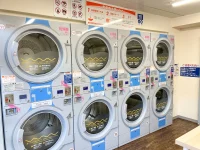What are the characteristics of Japanese cram schools (juku)? Explanation of differences from and types of juku overseas.

In Japanese education, "juku" (cram schools) are widely used as a place for learning outside of the school classroom. Many children attend juku, which complement and further develop the content of their school classes. Juku is also an indispensable part of Japan's unique entrance examination system.
However, the characteristics and roles of Japanese cram schools are not well known to foreigners.
Therefore, in this article, we will explain in detail the characteristics of cram schools in Japan, their educational structure, and how they differ from cram schools in other countries (foreign countries). We also introduce some famous cram schools in Japan. We hope that you will deepen your understanding of cram schools in Japan and use this information as a reference when considering your child's educational policy.
Let's take a closer look at the details.
▼Goandup Picks Click here for recommended articles!
- Required before studying abroad! Goandup Nihongo+, an online Japanese language learning service
- This page introduces services for foreigners who wish to study in Japan or improve their Japanese language skills to learn Japanese online.
- Goandup Salon" community for foreigners living in Japan
- We introduce an online community where foreigners living in Japan can exchange information and interact with each other to support their life in Japan.
- Goandup Study" supports foreigners who want to study in Japan.
- This section introduces study abroad support services that provide comprehensive support to foreigners who wish to study in Japan, from preparation for study abroad to living in Japan.
- Where can I buy a prepaid SIM in Japan? Recommended SIM cards for foreigners are also introduced.
- How to purchase a prepaid SIM and suitable SIM cards for foreigners.
- The Complete Guide to Pocket Wi-Fi in Japan for Foreigners!
- We introduce how to select and recommend pocket Wi-Fi products that can be used conveniently in Japan.
- The Complete Guide to Finding a Job in Japan! Finding a job, changing jobs, and part-time work for foreigners
- This site provides foreigners who want to work in Japan with comprehensive information on how to find a job, recommended job sites, and other information necessary to find a job.
General education system and juku (cram school) in Japan

In Japan, students generally go through a compulsory education period of six years of elementary school and three years of junior high school, followed by high school (senior high school) and then university, junior college, or vocational school. In these educational programs, there are both public schools and private schools. Public schools are operated mainly by local public bodies using taxpayer funds, while private schools are operated by private organizations (e.g., school corporations).
In the Japanese educational system, juku play an important role as a complement to school education. Cram schools provide supplementary instruction to deepen students' understanding of school content and special study guidance to prepare them for entrance exams. Many Japanese children attend cram schools to study in addition to their school classes.
| elementary school ↓arrow (mark or symbol) junior high school ↓arrow (mark or symbol) High School (Senior High School) ↓arrow (mark or symbol) University, Junior college, Vocational school |
| Public schools: Schools operated by local public entities using mainly taxpayer funds. Private schools: Schools operated by private organizations (e.g., school corporations) |
For a better understanding of the Japanese education system as a whole, please also see the following articles.
▶︎ How does the Japanese education system work? Explanation of the age to attend, timetable, etc.
Why do Japanese people attend juku?

There are two main reasons why Japanese children attend cram schools: one is to prepare for entrance exams and the other is to reinforce their schoolwork. Let's take a closer look at each of these reasons.
In addition to preparation for examinations, many students attend cram schools to gain a deeper understanding of school lessons and to consolidate their knowledge. It is believed that attending cram school not only increases the amount of time spent studying and the amount of knowledge gained, but also helps students develop the habit of studying.
In addition, rather than rushing to start cram school just before an entrance exam, students can smoothly prepare for the exam by attending cram school on a regular basis and accumulating learning experiences. Cram schools complement school education and play a major role in improving children's academic ability.
Reason 1: To prepare for entrance examinations
As reported earlier, public and private schools exist in almost all educational programs (schools) in Japan.
In compulsory elementary and junior high school, students are required to take an examination (sit for an entrance exam) in order to enter a private school, and in high school and beyond, they are required to take an entrance exam to enter a school of their choice. Juku in Japan has such an aspect of "teaching study for entrance examinations.
The "Common University Entrance Test" is held once a year, and many universities offer admission to their students as long as their score on the test is within the passing range.
However, most elementary, middle, and high schools create their own entrance exams. As for universities, many schools also have their own entrance examinations in addition to the results of the common test.
Since the contents of the examinations vary greatly depending on the characteristics and educational policies of the schools and what students will learn after entering the schools, it is necessary to prepare for the entrance examinations of each school if there are multiple schools to which students wish to enroll. Many families find it difficult to prepare for all the tests at home, which is why tutoring schools are often used.
Incidentally, cram schools that high school students attend to prepare for university entrance exams are also called "prep schools.
Reason 2: To reinforce learning at school
Many students attend cram schools even if they are not specifically preparing for an entrance examination. Many students attend cram schools to gain a deeper understanding of the content of the regular classes they take at school, or to ensure that the content of the classes is firmly established.
This is the reason why it is believed that students usually receive learning outside of school in this way and spend more time studying, which increases the amount of knowledge and at the same time develops the habit of studying.
Another reason may be that rather than rushing to start going to cram school six months before the exam, students can easily prepare for the exam by attending cram school in advance, increasing their knowledge and developing the habit of studying.
Differences in cram schools and educational policies in other countries (foreign countries)

Many foreign countries, especially in the U.S. and Europe, do not have the same concept of "entrance exams" and "cram schools" as in Japan. However, this does not mean that there is less time for studying.
In these countries, since exam grades in school have a significant impact on higher education, there is a strong emphasis on understanding and getting good grades in school on a daily basis. In many cases, families aiming for higher education focus on preparation and review.
Cram school in the U.S. and Germany
In the U.S., there are few places to go for study like cram schools in Japan, but instead, many families invite private tutors (tutors) to their homes to provide additional study to school lessons.
On the other hand, in Germany, there seems to be a negative impression that attending cram school = not keeping up with schoolwork. For this reason, many families hide the fact that their children attend cram school. In Japan, attending cram school is often seen as an additional learning experience to schoolwork, and this is a major difference.
The following articles may also be of interest to those who wish to gain a better understanding of the Japanese high school education system.
▶︎ Easy to understand for foreigners! Japanese High School Education System
Main types of juku in Japan

Various types of cram schools exist in Japan, but there are four main types: group tutoring cram schools, individual tutoring cram schools, prep schools, and online cram schools. Let's take a closer look at the characteristics of each.
1. group tutoring cram school
Group tutoring cram schools provide instruction to multiple students in a simultaneous class format. The style is similar to that of a school class, with the teacher using a blackboard to explain the lesson, and the students listening and taking notes.
The advantage of group tutoring schools is that tuition fees are relatively inexpensive because many students can be taught at the same time. In addition, the environment in which students can study while engaging in friendly competition with their classmates stimulates a competitive spirit and improves motivation.
On the other hand, it is difficult to provide detailed instruction tailored to each student's level of understanding, and some students may have difficulty keeping up with the pace of the class or may feel that 逆に is not enough.
2. tutoring school
Individual tutoring tutoring schools are tutoring schools in which instructors provide individualized instruction to each student. The curriculum is tailored to the student's level of understanding and learning pace, allowing for effective learning.
The greatest advantage of tutoring schools is that students can receive customized instruction tailored to their needs. Students can create a study plan that meets their objectives, such as overcoming weak subjects or further developing areas of strength. Another advantage is the close proximity to instructors, which makes it easy for students to ask questions and seek advice.
However, individual tutoring tutoring tends to be more expensive than group tutoring tutoring. In addition, there are fewer opportunities for friendly competition with other students, which may make it difficult to stimulate a competitive spirit.
3. prep school
Prep schools are educational institutions specializing in preparation for university entrance examinations, primarily for high school students. The curriculum is designed to enable students to efficiently learn the knowledge necessary for university entrance examinations in a short period of time, and students can receive specialized guidance for entrance examinations.
At a prep school, experienced instructors provide high quality lessons and the latest information on entrance examinations. In addition, an environment where students can engage in friendly competition with peers who are close to their school of choice and academic level is a great motivator for students taking entrance exams.
However, tuition at prep schools is generally expensive and commuting to school takes time, which tends to place a heavy burden on students and their families. In addition, because they specialize in studying for entrance examinations, it can be difficult to maintain a balance with school classes.
In addition to preparation for university entrance examinations, there are also prep schools that specialize in preparation for civil service examinations, various qualification examinations, and employment examinations. At these prep schools, students can receive specialized guidance according to their objectives.
4. online tutoring
Online tutoring is a new style of tutoring conducted via the Internet. The spread of the new coronavirus outbreak has led to its rapid adoption in Japan. Even cram schools that used to offer commuter-style classes have begun to noticeably combine online and commuter-style classes.
The greatest advantage of online tutoring is the ability to study from any location. Students can receive high quality instruction from the comfort of their own home, saving the travel time and transportation costs associated with commuting to a tutoring center. It is also advantageous in terms of infection control because direct contact with people is avoided.
Online tutoring allows two-way communication through video calls and chats. Because instructors and students can interact in real time through the screen, questions and consultations can be facilitated. In addition, by utilizing the recording function, lessons can be viewed repeatedly.
On the other hand, online tutoring has its own challenges, such as dependence on the communication environment and difficulty in communication compared to face-to-face classes. In addition, some students may find it difficult to maintain motivation because home study requires self-discipline.
Online tutoring is attracting attention as a new learning style that goes beyond the framework of traditional tutoring. The main attraction of online tutoring is that it allows students to flexibly advance their studies according to their needs and lifestyles. Further development and popularization of online tutoring is expected in the future.
Three famous cram schools (juku) in Japan

Here are three well-known, nationwide cram schools in Japan for elementary through high school students.
1. Tokyo Individualized Educational Institute
Tokyo Individualized Educational Institute is a tutoring school operated by Benesse Group, which is developing its business activities mainly in the education business.
As the name suggests, private tutoring (private tutoring / one on one) is a feature of the program, and in most cases, there are one or two students per teacher. The teacher can carefully check the progress of the students, and the students can easily ask questions and check the progress of the teacher. The school is open to students from elementary to high school.
Website: 【 Tokyo Individualized Educational Institute 】 for individual tutoring and cram school
2. Meiko Gijuku
Meiko Gijuku is a private tutoring school operated by Meiko Network Japan, Inc. which operates several businesses related to children's learning and education. This company also offers individualized tutoring for learning.
Because we operate several tutoring schools throughout Japan, we have a good understanding of local schools and can provide the latest school and exam information.
One of our strengths is that we have the No. 1 track record of students passing high school and university entrance examinations. We carefully check the situations and wishes of children and their parents/guardians, and tailor our classes to each individual student. The target students are from elementary school to high school.
Website:Meiko Gijuku, a private tutoring school for tutoring
3. school IE
School IE is a tutoring school operated by Motivation Switch Group Holdings, Inc. which operates tutoring schools, English conversation schools, early childhood education, and private day care services.
This is also a form of individual tutoring, and is characterized by the creation of study plans that take into consideration not only the progress of the student, but also the student's individuality and personality. Teachers are selected according to the student's needs, and custom-made textbooks are also created.
Recommended for those who want their students to receive individualized learning. The program is open to students from elementary to high school.
Serious employment support to help you realize your dream of working in Japan!

Do you want to work in Japan?
Let us "Goandup" make that dream a reality!
【 Program Features 】
✅ JLPT N3 level Japanese language acquisition
✅ Thorough preparation for the specific skills test
✅ Full support for job hunting in Japan
Business-focused one-on-one lessons will help you find a job in Japan in the shortest possible time.
【 Program Menu 】
- Individual Japanese language lessons
- Intensive curriculum to obtain N3, especially specialized lessons for business Japanese that can be used at work.
- Intensive curriculum to obtain N3, especially specialized lessons for business Japanese that can be used at work.
- Preparation for the Specific Skills Test
- Customized materials for specific skill tests will be used to focus on frequently asked questions and learning to pass the test.
- Customized materials for specific skill tests will be used to focus on frequently asked questions and learning to pass the test.
- Resume and CV support
- To create resumes and CVs tailored to Japanese corporate culture, and to brush up on self-promotion and motivation for application.
- To create resumes and CVs tailored to Japanese corporate culture, and to brush up on self-promotion and motivation for application.
- Interview Preparation
- Guidance on areas for improvement through mock interviews and feedback based on corporate interview scenarios. Learn interview etiquette and behavior unique to Japan.
- Guidance on areas for improvement through mock interviews and feedback based on corporate interview scenarios. Learn interview etiquette and behavior unique to Japan.
- career consulting
- Provide introductions to companies that match the participant's career goals, select companies to apply to, and provide advice on the level of knowledge required by the companies to which the participant is applying.
- Provide introductions to companies that match the participant's career goals, select companies to apply to, and provide advice on the level of knowledge required by the companies to which the participant is applying.
- Chat Support
- In addition to one-on-one individual lessons, we also accept casual questions via DM (visa application, living support, assistance in finding a room, etc.).
If you are serious about your career in Japan, join us now!
▶︎ for more informationclick here.
We will do our best to support your success in Japan!
summary
In this article, we have described in detail the characteristics and roles of cram schools in Japan, how they differ from cram schools in other countries, and some typical Japanese cram schools. In Japan's educational system, cram schools complement school education and play a major role in improving children's academic performance and preparing them for entrance exams.
There are various types of cram schools in Japan, including group tutoring cram schools, individual tutoring cram schools, and preparatory schools. It is important to understand the characteristics of each type of cram school and to choose the one that best suits your child's objectives and learning style.
We hope that through this article, you will gain a better understanding of cram schools in Japan and that it will be of some help to you in considering your child's educational policy.
Your support will help us!
Thank you for visiting Goandup Picks. Our mission is to provide you with more useful information to show the world what Japan has to offer.
Your support will help us to further enhance our activities, so please support us!






